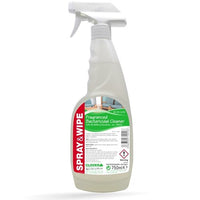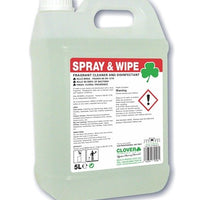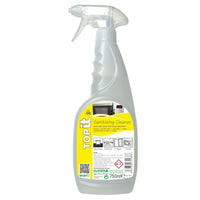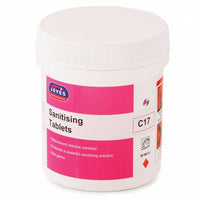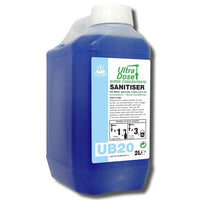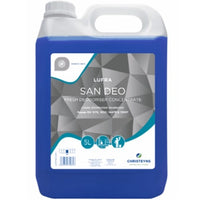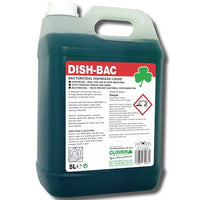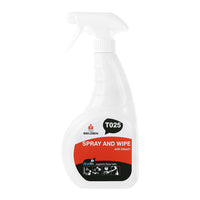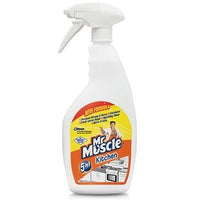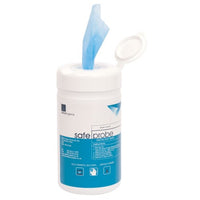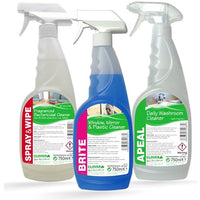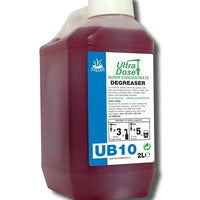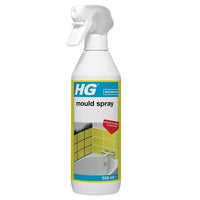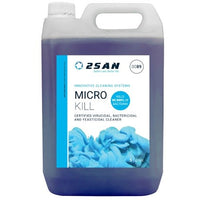Collection: Bactericidal Cleaning Products
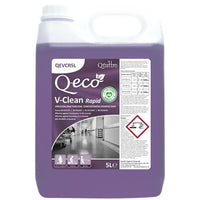
Comprehensive range of bactericidal and virucidal cleaning products for professional infection control. Disinfectants, sanitisers, antimicrobial cleaners and specialty treatments from leading brands. Essential for healthcare, catering, education and commercial facilities requiring proven pathogen control with reliable antimicrobial efficacy.
Bactericidal Cleaning Product information
Bactericidal products represent critical components of professional cleaning programmes where pathogen control, infection prevention, and antimicrobial
efficacy are essential for maintaining safe, hygienic environments across healthcare, food service, educational, and commercial applications where public health and safety are paramount.
At ClickCleaning, we provide a comprehensive range of bactericidal and virucidal products designed to deliver proven antimicrobial performance against bacteria, viruses, and other pathogens whilst maintaining practical application characteristics essential for professional cleaning operations. Our selection includes concentrated disinfectants, ready-to-use sanitisers, antimicrobial cleaners, and specialised treatments from trusted manufacturers.
The science of antimicrobial efficacy requires understanding pathogen types, contact time requirements, surface compatibility, and application methods that ensure effective pathogen elimination whilst maintaining operational efficiency. Different microorganisms require specific antimicrobial mechanisms
and formulations to achieve reliable kill rates essential for infection control.
Virucidal products such as Q-eco V-Clean Rapid and Versan Virucidal Surface Disinfectant provide targeted efficacy against viruses including enveloped and non-enveloped types through formulations specifically tested and verified for viral pathogen elimination. These products prove essential for pandemic preparedness and general infection control where viral contamination presents significant risks.
Bactericidal cleaners including Spray & Wipe Bactericidal Cleaner and Prochem Microsan combine cleaning action with antimicrobial activity, enabling simultaneous soil removal and pathogen elimination through dual-action formulations that address both visible contamination and invisible microbial
threats in single applications.
Concentrated disinfectants provide cost-effective antimicrobial solutions through precise dilution control that ensures appropriate active ingredient
concentrations whilst optimising operational costs. Products like 2SAN Micro Kill demonstrate how concentrated technology delivers professional performance whilst controlling chemical expenditure.
Sanitising products such as TopIT Sanitising Cleaner and UltraDose Sanitiser provide rapid antimicrobial action for frequent-use applications where quick pathogen reduction is required without intensive cleaning procedures. These formulations balance antimicrobial efficacy with convenience essential for busy operational environments.
Tablet formulations like Jeyes Defence Tablets offer convenient storage, transport, and application advantages whilst ensuring consistent active ingredient concentrations through controlled dissolution systems. These products prove particularly valuable for facilities requiring portable or measured antimicrobial solutions.
Disinfectant wipes including Safe Probe Disinfectant Wipes provide immediate-use antimicrobial cleaning for point-of-care applications, equipment cleaning, and situations requiring portable infection control capabilities without dilution or preparation requirements.
Specialty applications address specific antimicrobial challenges including mould treatment with products like HG Mould Spray that combine antimicrobial activity with targeted efficacy against fungal contamination, and kitchen-specific products like Dish-Bac that provide antimicrobial action appropriate for food service environments.
Contact time requirements vary by product formulation and target organisms, with most professional bactericidal products designed for practical contact times that balance antimicrobial efficacy with operational convenience. Understanding appropriate dwell times ensures effective pathogen elimination whilst maintaining realistic application procedures.
Surface compatibility ensures that antimicrobial products work safely across diverse materials commonly found in commercial environments whilst maintaining antimicrobial efficacy. Quality formulations balance pathogen elimination with material safety to prevent damage whilst delivering thorough disinfection.
Regulatory compliance considerations include selecting products with appropriate antimicrobial efficacy claims, regulatory approval for intended
applications, and documentation supporting infection control protocols required for healthcare, food service, and public facility applications.
Application methods range from spray-and-wipe procedures for surface disinfection to immersion systems for equipment sanitisation, with product
selection depending on contamination levels, surface types, and operational requirements specific to different facility environments and infection control
protocols.
Environmental factors including temperature, pH, and organic soil loads affect antimicrobial efficacy and may require adjusted application procedures
or product selection to ensure reliable pathogen elimination under specific operational conditions.
Quality assurance includes rigorous testing protocols that verify antimicrobial claims whilst ensuring consistent performance across product batches. Professional bactericidal products undergo extensive validation to confirm efficacy against specified organisms under defined test conditions.
Whether you're maintaining infection control in healthcare facilities, ensuring food safety in commercial kitchens, implementing hygiene protocols in
educational institutions, or addressing any application requiring proven antimicrobial performance, ClickCleaning offers bactericidal solutions that deliver reliable pathogen elimination whilst supporting practical operational requirements.
Please contact us if you have any questions about our range we can assist with.
Bactericidal Cleaning Products FAQs
What's the difference between bactericidal, virucidal, and sanitising products?
Bactericidal products specifically target and kill bacteria, virucidal products eliminate viruses, whilst sanitising products reduce microbial contamination to safe levels but may not eliminate all pathogens. Products like Q-eco V-Clean Rapid provide proven virucidal efficacy, whilst Spray & Wipe Bactericidal Cleaner targets bacterial contamination. Sanitisers like TopIT reduce overall microbial loads for routine hygiene maintenance. The choice depends on specific pathogen concerns and regulatory requirements. Healthcare environments typically need proven bactericidal/virucidal efficacy, whilst general commercial facilities may find sanitising products adequate for routine applications. Always verify efficacy claims match your specific antimicrobial requirements and regulatory compliance needs.
How long should disinfectants remain on surfaces for effective pathogen elimination?
Contact time varies by product formulation and target organisms, typically ranging from 30 seconds to 10 minutes for complete antimicrobial activity. Most professional products like Prochem Microsan specify contact times on labels—follow these guidelines for effective pathogen control. Surfaces should remain visibly wet during contact time for optimal efficacy. Critical applications may require longer contact times for specific pathogens. Quick-acting products enable faster cleaning cycles but may cost more than slower-acting alternatives. Don't wipe surfaces dry before specified contact time expires. If surfaces dry before completion, apply additional product. Understanding and following contact time requirements ensures effective infection control whilst maintaining practical application procedures.
Are bactericidal products safe for food service environments?
Appropriate bactericidal products work safely in food service environments when properly selected and applied according to manufacturer guidelines. Products like Dish-Bac provide antimicrobial action suitable for commercial kitchens. Verify food-safe approvals and follow rinsing requirements where specified. Some products require no-rinse formulations for convenience, whilst others need rinsing before food contact. Consider application timing during non-food preparation periods when possible. Check local health department requirements for approved disinfectants and contact times. The key is selecting products specifically tested and approved for food service applications that balance antimicrobial effectiveness with food safety compliance. Always follow manufacturer guidelines and regulatory requirements for food service use.
Can I use the same bactericidal products throughout my entire facility?
Multi-purpose bactericidal products work across many applications, but different areas may need specific formulations for optimal results and compliance. Healthcare areas require products with verified efficacy against healthcare-associated pathogens. Food service needs food-safe approvals and appropriate contact times. General commercial areas may use broader-spectrum products. Consider surface compatibility—some antimicrobials may affect certain materials or finishes. Verify regulatory requirements for different facility zones. Using versatile products like Spray & Wipe Bactericidal Cleaner for general applications whilst maintaining specialist products for critical areas often provides optimal balance between inventory simplicity and performance effectiveness. Always ensure products meet specific regulatory and efficacy requirements for intended applications.
What safety precautions are essential when using antimicrobial products?
Read safety data sheets and product labels completely before use, following manufacturer safety guidelines. Ensure adequate ventilation during application, especially with concentrated products. Wear appropriate personal protective
equipment including gloves and eye protection when recommended. Never mix different antimicrobial products unless specifically approved—dangerous chemical reactions may occur. Store products securely away from children and incompatible materials. Train staff on proper dilution, application, and emergency procedures. Have first aid information available and know emergency contacts. Consider timing applications to minimise occupant exposure where possible. Monitor for skin or respiratory sensitivities among staff. Most professional antimicrobial products are safe when used correctly but require proper handling procedures and safety awareness.
How do I choose between concentrated and ready-to-use bactericidal products?
Concentrated products like Q-eco V-Clean Rapid offer cost advantages through dilution control and reduced packaging whilst requiring accurate mixing for proper antimicrobial activity. Ready-to-use options like Spray & Wipe provide convenience and eliminate dilution errors but typically cost more per application. Consider usage volume—high-volume operations often benefit from concentrates whilst low-volume or infrequent users may prefer ready-to-use convenience. Training requirements differ as concentrates need proper dilution procedures whilst ready-to-use products minimise application errors. Storage considerations include space for dilution equipment and proper chemical storage for concentrates. Many facilities use both strategically—concentrates for routine applications and ready-to-use for convenience or emergency situations.
What's the importance of surface preparation before applying disinfectants?
Effective disinfection requires clean surfaces as organic soil, grease, and debris can interfere with antimicrobial activity and protect pathogens from chemical contact. Remove visible contamination through appropriate cleaning before disinfectant application. Some products like bactericidal cleaners combine cleaning and disinfection in single applications, whilst others require pre-cleaning with separate products. Heavily soiled surfaces may need multiple cleaning steps before effective disinfection can occur. The presence of organic matter can neutralise active ingredients and prevent pathogen contact with antimicrobial compounds. Consider two-step cleaning protocols for critical applications—clean first, then disinfect—to ensure optimal antimicrobial efficacy. Proper surface preparation significantly improves disinfection effectiveness whilst reducing product waste.
How do I verify antimicrobial efficacy claims for different products?
Look for specific test standards and organism lists rather than general antimicrobial claims. Reputable products specify testing protocols (like EN standards) and list organisms against which efficacy has been proven. Verify contact times and dilution rates used in testing match your intended application. Check for independent laboratory testing rather than manufacturer claims alone. Regulatory approvals from relevant authorities provide additional confidence in efficacy claims. Products should specify log reduction rates (e.g., 99.9% reduction) and test conditions. Be wary of vague terms like "antimicrobial" without supporting data. Professional products typically provide detailed efficacy documentation including organism lists, test methods, and performance data. Contact manufacturers for detailed efficacy documentation if not readily available.
Can antimicrobial products be used on electronics and sensitive equipment?
Some antimicrobial products work safely on electronics whilst others may cause damage through moisture, chemical incompatibility, or residue formation. Products containing alcohol like some disinfectant wipes often suit electronics
better than heavily moistened alternatives. Always verify manufacturer compatibility and test inconspicuous areas first. Consider application methods that minimise moisture exposure—slightly damp wipes rather than spray applications. Allow complete drying before equipment operation. Some equipment requires specific antimicrobial products approved by manufacturers. Critical or expensive equipment may need specialist cleaning protocols rather than general antimicrobial products. Always follow equipment manufacturer guidelines and consider professional assessment for valuable or sensitive equipment requiring antimicrobial treatment.
What storage and inventory management practices ensure antimicrobial product effectiveness?
Store antimicrobial products in cool, dry conditions away from temperature extremes that might affect active ingredient stability. Keep containers tightly sealed to prevent contamination and maintain potency. Implement first-in, first-out rotation to ensure fresh stock usage and prevent degradation from extended storage. Monitor expiration dates closely as expired antimicrobial products may lose efficacy without visible signs. Separate different product types to prevent cross-contamination or accidental mixing. Maintain appropriate inventory levels that balance availability with turnover to ensure fresh, effective products. Store concentrates and ready-to-use products appropriately—concentrates may need different conditions than diluted solutions. Regular inventory audits verify product condition and identify items approaching expiration. Proper storage maintains antimicrobial effectiveness whilst ensuring safety and regulatory compliance.


